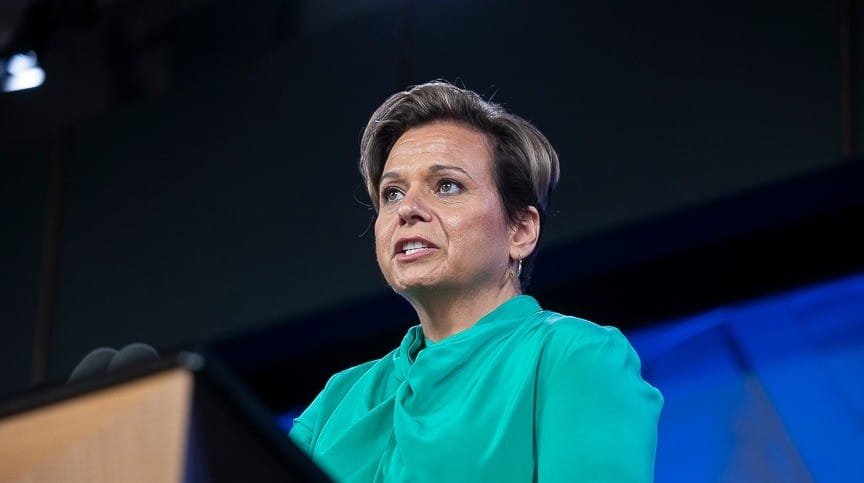The federal government’s appetite for significant reform on gambling advertising and promotion appears to be on the wane, with Communications Minister Michelle Rowland unable to give a precise time frame for when she will put forward a formal response to the ‘You Win Some, You Lose More’ report.
Minister Rowland’s recent address to the Press Club in Canberra was predicted to be the setting for her to outline the way forward for advertising reform in the wagering space, coming nearly six months after the release of 31 recommendations by the bi-partisan parliamentary committee which authored the ‘You Win Some, You Lose More’ report.
The report recommended that all advertising for online gambling be banned within three years, in a phased-out approach which would dramatically change the promotional avenues open to wagering companies in Australia.
It also recommended the immediate banning of ‘inducement and inducement advertising’.
That led to a flurry of lobbying by wagering companies, PRAs and industry representative bodies, who in submissions to the government have suggested the net negative impact on the Australian racing industry could be anything from $100 million to $500 million a year.
However, if advocates for change were hoping for a quick response from the federal government, Minister Rowland’s address gave no sense of immediate progress on the recommendations.
Indeed, her language and tone suggested the federal government felt it had already made significant steps in terms of harm minimisation and that it would take a measured approach to further reform.
“A solid evidence base is important to addressing online harms, particularly for those who are most vulnerable,” Rowland told the Press Club.
“In the last 12 months, I have introduced several gambling harm minimisation measures, including launching Betstop, the national self exclusion register, agreeing new mandatory minimum classifications for games with gambling-like features, and introducing legislation to ban the use of credit cards for online wagering.
“This is in addition to the government’s work to implement consistent gambling messaging, wagering staff training and mandatory customer pre-verification.”
She outlined that Betstop had already led to some 13,000 self-exclusions since it was introduced in August, 40 per cent of which had been lifetime exclusions.
Asked specifically if the banning of online gambling advertising was a straight-forward issue, Rowland indicated there were significant complexities in any reform.
“In relation to gambling advertising, I, like many Australians, am concerned about the extent and impact of gambling ads. I have been working with my department to understand how we can practically implement reforms and engage with a wide range of stakeholders, media, digital platforms, sporting codes and harm reduction advocates,” she said.
In 18 months, the Albanese government has delivered more in terms of gambling reform and harm minimisation than any government before it
- Michelle Rowland
It would appear from that language that Rowland is advocating for more consultation saying that, together with Social Services Minister Amanda Rishworth she looks forward ‘to outlining our agenda to further address gambling harms’ at some point in the future.
Tellingly she repeatedly referred to what she said had already been achieved since Labor took power in May 2022.
“In 18 months, the Albanese government has delivered more in terms of gambling reform and harm minimisation than any government before it,” she said.
“I would point out that the last substantive time this (gambling advertising) was amended under the Turnbull government, it actually resulted in an increase of gambling advertising, so we need to ensure that we get the policy settings right.”
Any announcement of federal government reform in wagering and gambling advertising is now not expected until early 2024 at the earliest.






